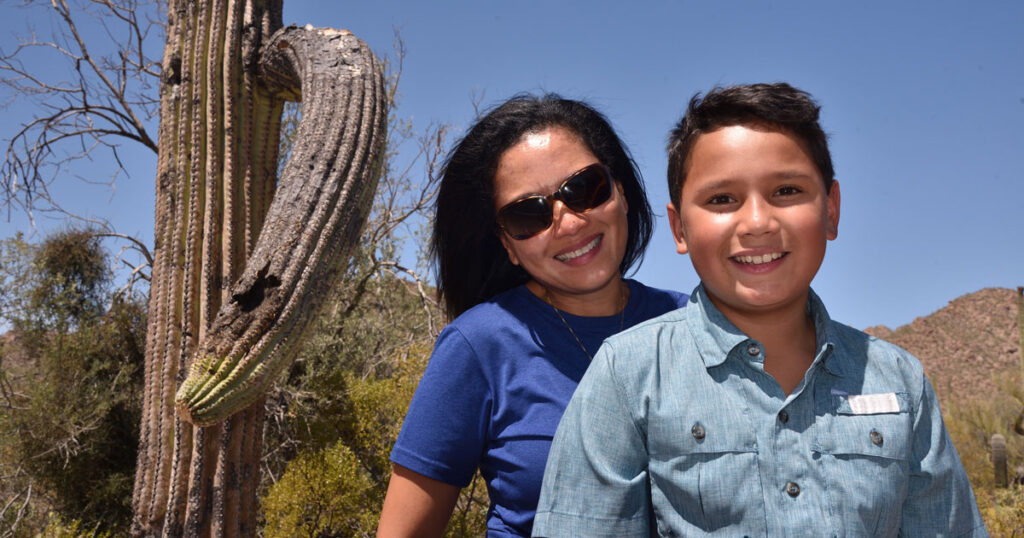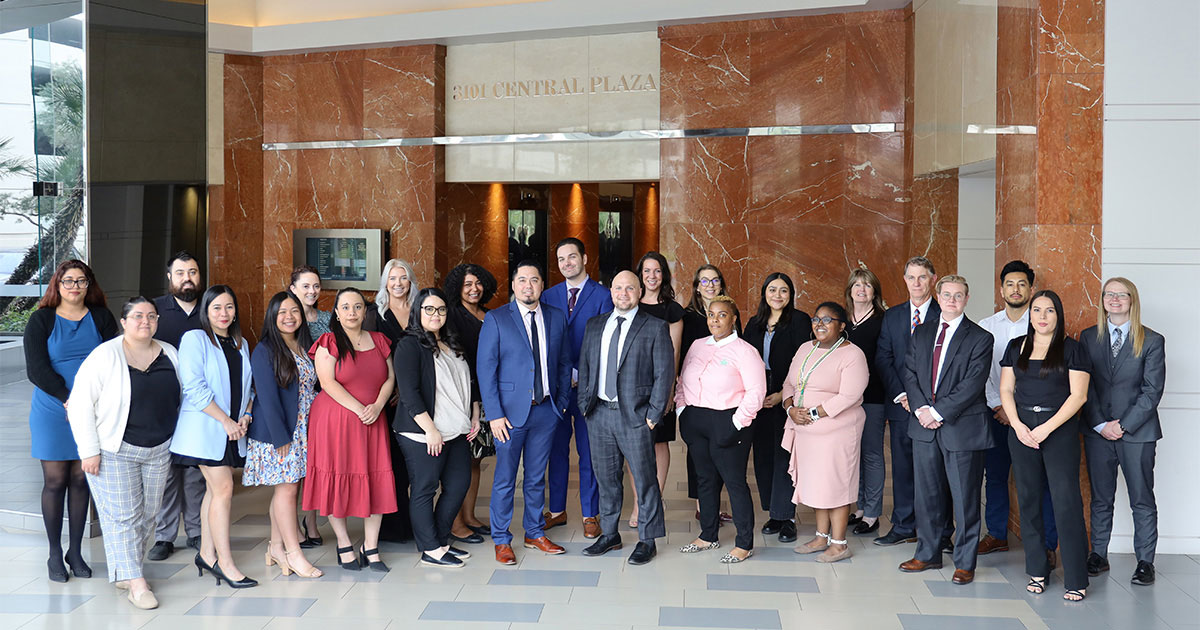When parents divorce, it’s important to create a childcare plan in the children’s best interests. Should the parents disagree on child custody matters, the court will issue a plan that considers the child’s health and welfare. These decisions can include how often the child spends time with each parent, as well as which parent will be considered the primary caregiver and which parent will be responsible for making important legal decisions. Other people, such as relatives or unmarried parents, may request custody or parenting time as well. Planning for child custody in Arizona can be stressful, but you don’t have to do this alone.
Our team at The Valley Law Group has prepared a free guide addressing several questions we often hear from concerned parents in Arizona. If you’re involved in a child custody case, it is crucial to understand the laws and statutes that apply to your case. Child custody hearings can be stressful for everyone, and our goal is to provide a clearer understanding of this situation to mitigate the stress and ensure your child’s needs are met.
Child Custody in Arizona Defined
Arizona’s child custody laws are different from other states, primarily due to the legal terminology used. According to Arizona law, legal custody is referred to as “decision-making” rights, whereas physical custody is termed “parenting time.” If a parent has physical custody, they are required to provide housing, food, and any other necessities. Legal custody, on the other hand, involves decisions about the child’s schooling, healthcare, and more.
Who Determines Legal and Physical Custody?
In some cases, the parents agree on physical and legal custody (parenting time and legal decision-making) arrangements. If this occurs, a judge must simply evaluate the agreement and either approve or make changes. However, in situations where parents cannot come to an agreement, the Family Court will determine legal and physical custody of the children. The court may seek testimony from third-party experts who understand the family dynamic and can provide an opinion about custody. In certain cases, social services may be called in to evaluate the custody matter.What Are “Best Interests”?
According to Arizona law, the court will use the following criteria to determine the child’s best interests:- The child’s relationship with their parents (past, present, and future)
- The child’s relationship with siblings and other family members
- The child’s status in school, the local community, and home
- Mental and physical health of both the child and their parents
- Any history of domestic and child abuse
- The child’s wishes, if the child is mature enough to communicate a reasonable preference

Sole and Joint Custody in Arizona
In certain cases, a parent can receive full legal and physical custody of their child, known as sole custody. If a parent is awarded sole custody of their child, they will be responsible for making all the major decisions that influence the child’s welfare and health, and the child will live with that parent. While both parents may discuss the child’s care, the parent with sole custody makes the final decision, regardless of whether the parents agree or not. Alternatively, parents may be issued joint custody of their child, both in terms of parenting time and decision-making rights. The parents must submit a written parenting plan and receive court approval for any agreement. It’s important to note that parents may agree to joint legal custody of their children but not joint physical custody.Specific Questions About Custody
No child custody case is the same, and all parents and children have unique needs and wishes. It’s common for parents planning for child custody in Arizona to have more specific questions about their situation.
Here are some frequently asked questions regarding Arizona child custody cases.
While you can change a court order, there are some constraints. For example, you must wait one year from the original order to file a petition for change. However, if there is evidence of abuse or another dangerous situation, you may be able to change the order before the one-year mark.
If your job requests an immediate relocation before the 60 days is complete, the parent must have joint physical custody, as well as the agreement of both parents or a court order. If an agreement is not reached before the 60-day period concludes, the working parent must file a request with the court.
Before making a request, there are other requirements that must be met:
- One of the child’s parents is deceased or has been missing for 90 days.
- The child was born to unmarried parents.
- A court case for legal separation or divorce between the legal parents is pending.
Suggested Reading: Mothers and Child Custody in AZ
Questions Regarding Parenting Time
After the parents have divorced, it is crucial for the child to have a strong relationship with both. The child must have an opportunity to spend time with each parent, and many parents in Arizona have asked about parenting time.
Below are frequently asked questions regarding parenting time in Arizona.
Each parent is allowed a reasonable amount of parenting time so the child can keep in contact with both parents. Parenting time can be reduced or denied if the child’s physical, emotional, or mental health is in danger due to time spent with one parent. Parenting time may also be reduced if it would be in the child’s best interests to remain with the other parent during the school year or to stay close to a neighborhood, church, or other family.
There is no set requirement for how long each parent should spend with their child, but there may be cases where visiting for shorter periods frequently may be better. If you’re unsure how much parenting time is best, consider looking at the Model Parenting Time Plans that the Arizona Supreme Court has established. If you still cannot agree on parenting time arrangements, the court will determine this for you.
Suggested Reading: Guide to Parenting Time in AZ
Parents determining custody of their child must submit a written plan to the court. This plan, known as the parenting plan, clearly illustrates the custody arrangement the parents have agreed on. If the court agrees with the plan and creates a custody order, both parents must abide by it and may request enforcement of the order. The plan should delineate parenting time and legal decision-making rights in a way that is predictable for all involved.
Yes, parenting time and custody are closely related. Arizona law refers to physical custody as parenting time in most cases. Even parents who are not the primary caregiver are allowed parenting time rights so that the child can maintain a healthy relationship with both parents. However, it is important to note that even if parents have joint legal custody of their child, the parenting time agreement may dictate that the child lives primarily with one parent and has visitation time with the other.
If a parent ignores a parenting time order and does not allow visitation, the other parent cannot stop paying child support or take self-created action against the violating parent. Instead, the parent should contact an Arizona Child Custody attorney for help. An attorney can help petition the court to enforce the order. If a parent does not return the child after visitation, this is also in violation of the court order. In addition to enforcement actions like contempt of court charges, the parent may also face kidnapping charges depending on the situation.
The Valley Law Group Can Help
Determining child custody – whether parenting time or legal decision-making rights – can be challenging, especially when the parents are no longer amicable. It is crucial for any custody arrangements to meet the child’s best interests, and this is the court’s utmost priority. To determine the child’s best needs and reach an agreement that is amenable for parents and children, it is essential to contact an Arizona child custody attorney.

At The Valley Law Group, our Arizona child custody lawyers have amassed decades of experience helping parents determine child custody matters.
Planning for child custody in Arizona can be difficult, but an attorney can help you determine what’s best for your child and create a parenting plan that meets those needs. Don’t navigate this complex scenario alone—seek help from our qualified attorneys.
